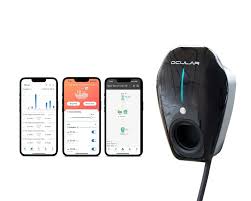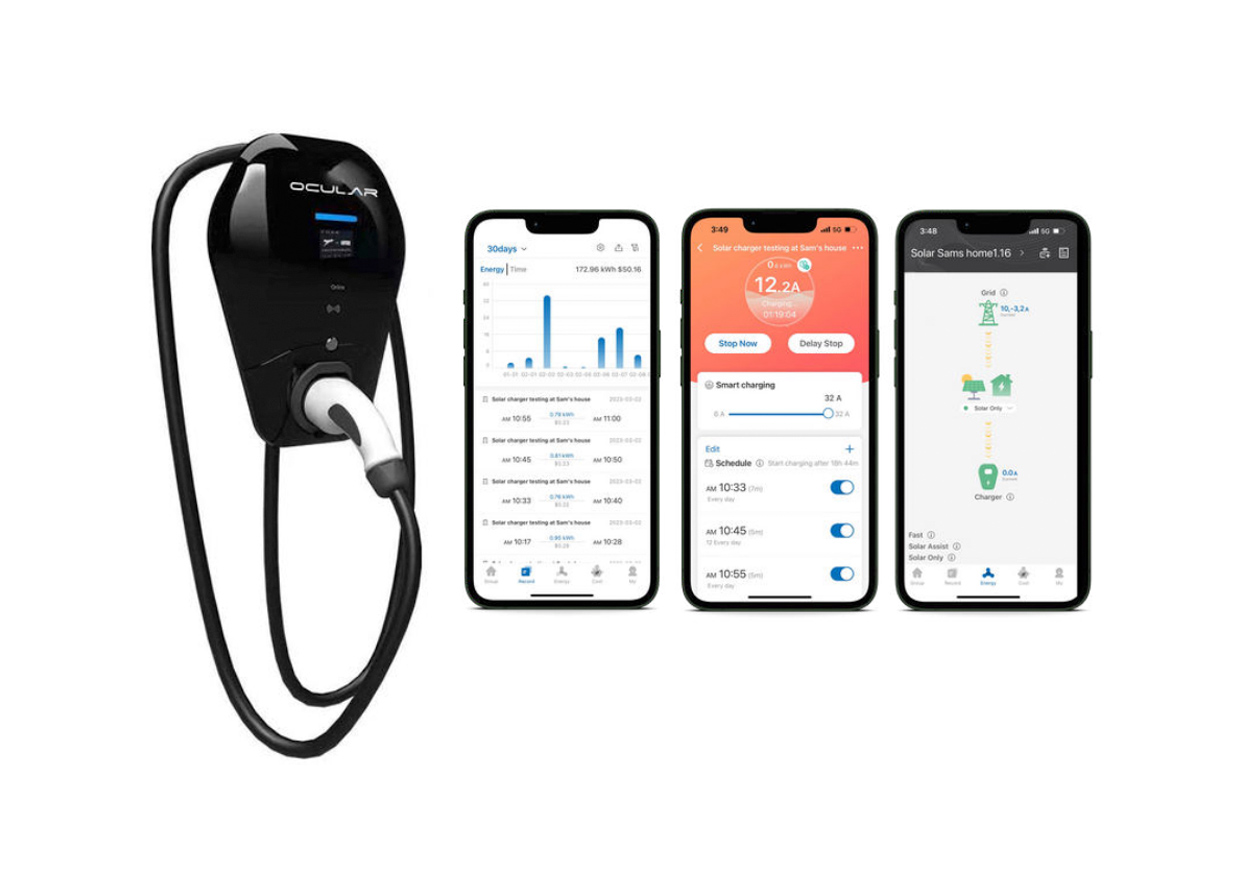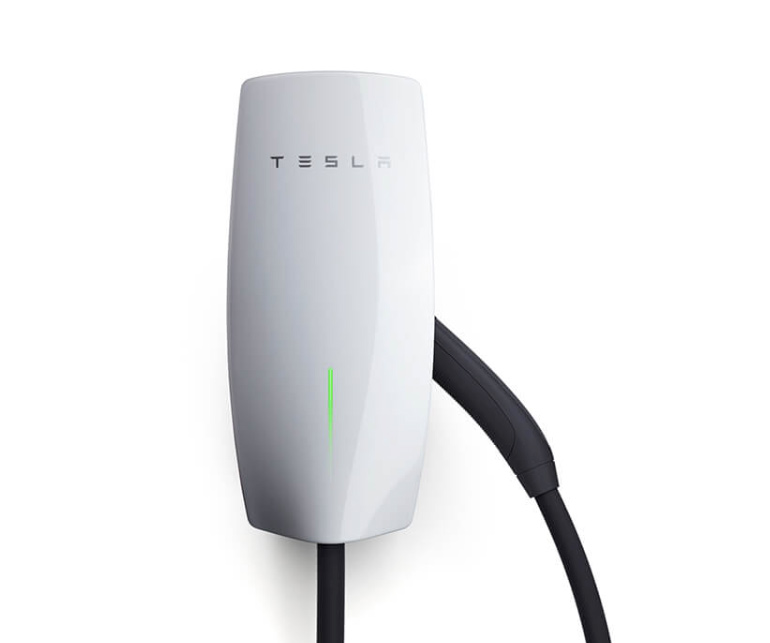Electric Vehicle Chargers Adelaide
Electrical vehicle chargers are available now!
BMS Electrical Services Pty Ltd
Trading as Adelaide Electric Vehicle Chargers
Building 91, 1 Frank Collopy Court
Adelaide Airport, SA 5950
Phone: 08 8274 0100
Electric Vehicle Charging Solutions
The EVC Team have been supplying and installing EV Chargers for a number of years now. Whilst we have a preferred and recommended list of EV Chargers that we supply and install, we can install your own charger or another brand if you prefer.
We have gained considerable experience installing the Ohme, Ocular and Tesla Chargers and can recommend them as reliable, easy to use universal EV Chargers for any EV vehicle.
You can click on the learn more buttons of each of the chargers to access more detailed information.
Ohme ePod

OCPP Capability
Solar Compatible
Phone App
Wifi Connectivity Required
Energy Tariff Programming
Untethered
Single Phase 7.4Kw
$1,199*
Ohme Pro

OCPP Capability
Solar Compatible
Phone App
Wifi Connectivity Required
Energy Tariff Programming
LCD Screen
5m Type 2 Tethered Cable
Single Phase 7.4KW
$1,395*
Ocular IQ Home
Enduring value for Australian homes

OCPP Capability
Solar Compatible Charger
Comes with free Ocular Smart Phone App
Single or 3 Phase
From $1470*
Ocular IQ Solar
Ocular's Solar Aware Charger

Comes with a free integrated home app
to track and control solar
OCPP Capability
Single or 3 Phase
From $1,989*
* Price is for single phase model and excludes installation and delivery
About Us
Prior to the establishment of Adelaide Electric Vehicle Chargers nearly all Universal Electric Vehicle Chargers and Accessories had to be sourced from manufacturers or wholesalers in Melbourne or Sydney or via an Electrical Contractor who installed this type of electrical equipment.
Adelaide Electric Vehicle Chargers was established to be a local Adelaide Specialist and Supplier of this equipment whilst also offering installation if required.
Our background is Residential and Commercial Electrical Services so we have the technical and product knowledge to supply you with right products you need for your vehicle. If you also require installation we can offer this service via our sister company BMS Electrical Services.
FAQ
Why EV?
Governments around the World are responding to the need to take action on climate change. Locally the South Australian and Federal Governments are committed to deliver a cleaner environment through the transition of replacing fossil fuels with clean power. To achieve this Governments are bringing forward initiatives for the widespread adoption of electric vehicles. This is a seismic shift in transportation not seen since Henry Ford produced the Model T last century.
South Australia’s Electric Vehicle Action Plan states that by 2030 they want electric vehicles to be the mainstream and common choice for new car purchases. By 2035 the plan is for all new vehicles sold in South Australia to be electric vehicles. To help achieve this the South Australian Government
offers a $3000 subsidy for the first 7000 battery electric vehicles purchased valued upto $68,750. There is also a 3 year registration fee exemption for new battery electric vehicles purchased.
Whilst there are broad environmental benefits that will flow from the transition to electric vehicles, there are also other advantages to owning an electric vehicle. Electric Vehicles are significantly cheaper to run, including fuel savings of up to 70% and maintenance savings of around 40%.
Battery electric vehicles (BEVS) have a lot less moving parts than a petrol or diesel car. There is relatively little servicing and no expensive exhaust systems, starter motors, fuel injection systems, radiators and many other parts are not needed in an EV.
What is an EV Charger and how do EV Chargers work?
An EV charger is a device that provides a faster charge to your vehicle compared to simply plugging the vehicle into a standard home power point. The chargers significantly reduce the charging time of the vehicle. Most electric vehicles have two charging sockets, one for AC charging at your home or your workplace and one for DC charging at high speed public charging stations.
AC Chargers deliver mains AC current to the vehicle’s on-board charger, this then converts the AC supply to DC and controls the charging process for the vehicle. Whilst high-speed DC chargers deliver a high voltage DC current directly to the vehicles battery.
Vehicle Charging Times
This is a basic guide on the factors that influence charging time of electric vehicles and the concept of top-up charging.
There are three main ways of charging an electric vehicle, these are:
Power Point Adaptor Charger – this adaptor plugs into a 10 or 15 amp power point. While this will charge your vehicle, it will take some considerable time to do so, especially if battery level is low.
AC Wall Charger – the quickest and most convenient way to charge an electric vehicle at home. The dedicated charger uses much higher power levels and is available in either 7kW single phase or 22kW three phase. Depending on the type of charger chosen, they may also integrate with your Home Solar and/or Solar Battery system or the vehicle may also be used to store energy to use at home in place of a Solar Battery, known as a Vehicle to Grid Charger (V2G).
DC Rapid Charger – commercial chargers available at dedicated public charging points, which directly charge the vehicles battery bypassing the vehicles charging controller.
How long does it take to fully charge an electric car?
Approximate empty-to-full time to charge with different charger speeds:
| Vehicle | Empty to full charging time*** | ||||||
| Model | Battery | Pod Point Confidence Range* |
3.7kW slow | 7kW fast | 22kW fast | 43-50kW rapid | 150kW+ rapid |
| Nissan LEAF | 39kWh | 270 km | 11 hrs | 7.5 hrs | 7.5 hrs | 1 hr | Can’t charge on this kind of charger |
| Tesla Model S** | 75kWh | 380 km | 21 hrs | 11 hrs | 5 hrs | 2 hrs | <1 hr |
|
(Plug-in Hybrid EV) |
20kWh | 38 km | 9.5 hrs | 6.5 hrs | 6.5 hrs | 38 mins | Can’t charge on this kind of charger |
Note: Values are approximates only, as vehicle specifications will vary model to model.
* Pod Point Confidence Range is the maximum distance we’d be confident driving on electric power between charges. Real range will depend on various factors including driving conditions, personal driving style, outside temperature, heating / air conditioning, etc.
** Numbers shown are for the entry level Standard Range.
*** Charging time may be limited by the maximum charging rate of the electric vehicle.
Analysis:
- Rapid chargers are the fastest way to charge your electric vehicle, providing between 95-320 kilometres of range in 20-30 minutes.
- Home chargers typically have a power rating of 3.7kW, 7kW or 22kW chargers that require three phase power.
- All electric vehicles can charge on compatible chargers with a higher maximum charge rate than they can handle; they just charge at the maximum rate that they can accept.
Tip: Almost all full battery electric vehicles can rapid charge, most plug-in hybrid electric cars cannot.
What is top up charging?
Most electric vehicle drivers plug-in to charge whenever they park, be it at home overnight or during the day at the supermarket, gym or their workplace. This is called top up charging.
- Instead of letting the battery run empty and waiting while it fully recharges, drivers make use of the time their car is parked (which is about 95% of the time) to keep the battery topped up.
- Public and workplace charging points typically range from 7kW to 22kW, making them ideal for top up charging.
- Combining daytime top-up charging with overnight charging at home is an effective way to keep your electric car charged and ready to go.
Tip: Electric car drivers don’t worry much about how long it takes to charge from empty-to-full. It’s more useful for them to know how many kilometres of range they’ll get when they plug-in to top up.
How much range you get per hour of charging
As an electric vehicle driver, it’s useful to know how many kilometres of range you are getting during the time your vehicle is charging so you know you can get to your next destination.
| Kilometres of range added per hour of charging | ||||
| 3.7kW slow | 7kW fast | 22kW fast | 43-50kW rapid | 150kW rapid |
| Up to 24km | Up to 48km | Up to 145km | Up to 145km in 30 mins | Up to 320km in 30 mins |
Analysis:
- Range per hour varies depending on how efficient your vehicle is. Small full battery electric vehicles (e.g. Tesla Model 3) are the most efficient and get ~38 km of range per hour charging at 7kW.
- The biggest full battery electric vehicles (e.g. Audi e-tron Quattro) are heavier and get ~32 km of range per hour at 7kW. (Plug-in hybrids are usually less efficient than full battery electric vehicles).
- How efficient a vehicle is also depends on environmental factors like temperature. This means electric vehicles are more efficient and get slightly better range per hour in summer than they do in winter.
Factors that affect charging speed
There are 5 main factors that affect the time it takes to charge an electric vehicle.
- Size of battery: The bigger your vehicle’s battery capacity (measured in kWh), the longer it will take to charge.
- State of battery (empty vs. full): If you are charging from empty, it will take longer to charge than if you are topping up from 50%.
- Max charging rate of vehicle: You can only charge a vehicle’s battery at the maximum charge rate the vehicle can accept. For example; if your vehicle’s max charge rate is 7kW, you won’t charge any faster by using a 22kW charger.
- Max charging rate of charger: The time it takes to charge will also be limited by the max charging rate of the EV charger you are using. For example; even if your vehicle can charge at 11kW, it will only charge at 7kW on a 7kW charger.
- Environmental factors: A colder ambient temperature can make it take slightly longer to charge, particularly when using a rapid charger. Colder temperatures also mean vehicles are less efficient, so less miles are added per time charging.
Tip: In cold weather, bringing the cabin space (and battery) up to temperature takes energy not used to drive the vehicle. If the vehicle regularly heats then cools down after short journeys, you use much more energy and your range significantly reduces. This means it’s a good idea to use regular top up charges. On longer trips the effects of cold weather are less pronounced, though still noticeable.


